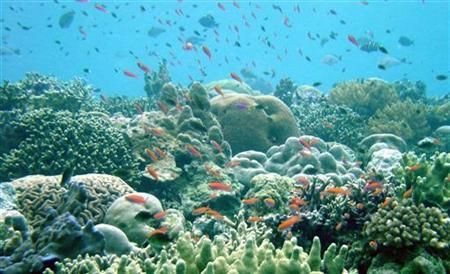Coral reefs bound to die despite climate change summit's success

Even if a positive outcome is achieved at the Climate Change Conference, or COP21, scheduled to be held in December in Paris, the world's coral reefs might still be in great danger. According to scientists, ocean acidification and ocean warming would still continue to happen.
Professor Peter F Sale of the University of Windsor, Canada presented the research findings at the world's largest gathering of geochemists, the Goldschmidt conference in Prague. Sale says that one of the aims stated for the COP21 conference states that the countries will take measures to limit the oceanic temperature increase to 2 degrees by the end of the next century.
However, Sale has emphasised the issue that even if the Paris conference becomes highly successful and a treaty is achieved between the participating countries, “ocean warming and ocean acidification are going to continue beyond the end of this century." He further adds that the issue is getting important and serious at the same time. Going by the rate at which the corals are changing, Sale believes that soon it will be hard to find corals that existed during the 1960s.
“I find it very unlikely that coral reefs as I knew them in the mid-1960s will still be found anywhere on this planet by mid-century. Instead, we will have algal-dominated, rubble-strewn, slowly eroding limestone benches,” said Sale in a press statement.
Sale says that it is unlikely to save the coral reefs until some stringent steps are taken to lower down the carbon dioxide emission, reports the Science World Report. In addition, working toward the other threats to the oceans, including protection of the marine areas and reduction in pollution of the coastal water, could hopefully give a good chance to the coral reefs for survival.
“This is a global emergency, which requires us to decarbonise within the next 20 years, or face temperatures that will eliminate ecosystems like coral reefs, and indeed many systems that humans depend on," said Professor Ove Hoegh-Guldberg, in a latest IPCC report.
Contact the writer at feedback@ibtimes.com.au, or let us know what you think below.





















